Becoming limitless: How to let go of limiting beliefs
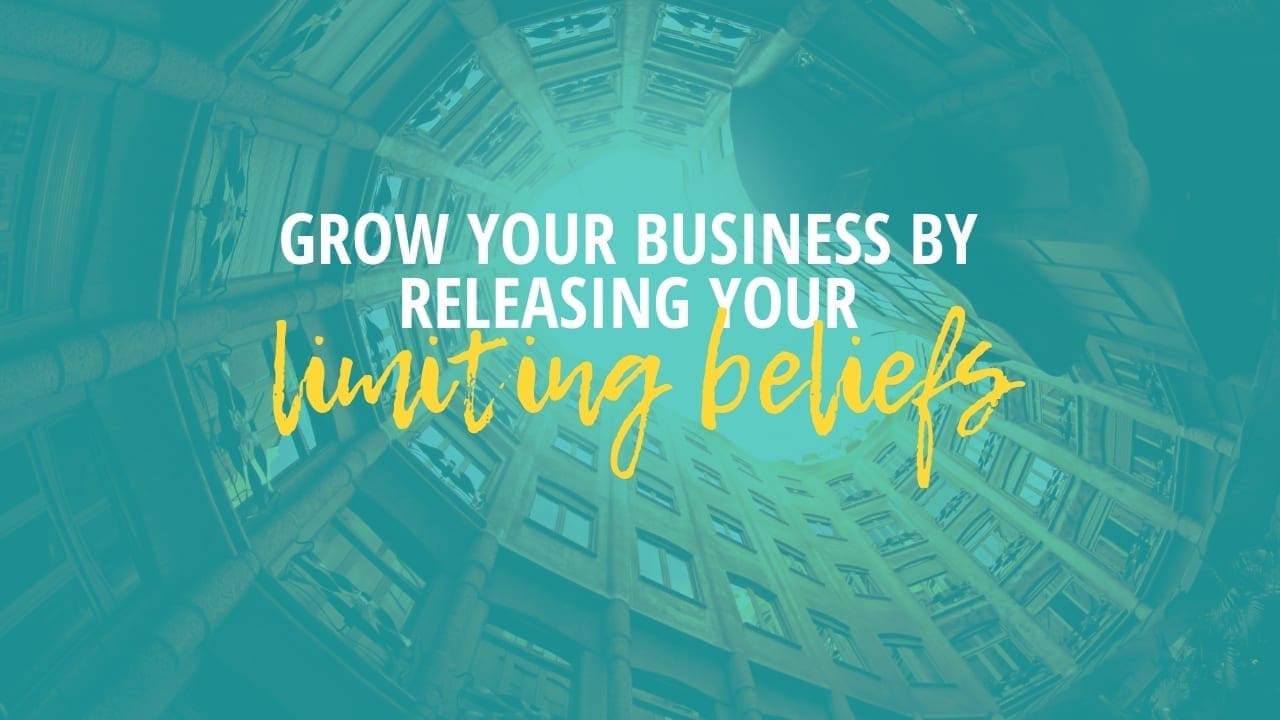
Are your limiting beliefs holding you back?
Limiting beliefs can have more of a negative impact on your life than any other factor.
After all, most of us are pretty rationale – we’re not going to spend a lot of time on something that we believe is doomed for failure. Why would you even try to lose weight if you genuinely believed that everyone in your family was destined to be overweight?
We all carry around numerous limiting beliefs. They come from a variety of sources as well as from our own interpretation of the world around us. Humans can’t help but learn, but sometimes we learn things that are inaccurate.
Fortunately, you can eliminate limiting beliefs and replace them with beliefs that empower you. Imagine replacing a limiting belief with one that makes life easier and enables you to be more successful. How would you feel?
It’s important to follow a plan or process. Most things in life are like baking a cake. If you do all the right things in the right order, in the end you’ll get a cake. It’s impossible to have any other result. Likewise, by following a process, you can banish your limiting beliefs.
Processes can be a wonderful thing. For example, if you have an effective process for getting up and getting ready in the morning, you’ll never be late. If you have a healthy process for deciding what to eat, you’re likely pretty healthy.
What is a limiting belief? For our purposes, here’s our definition:
“A limiting belief is one that causes life to be less than completely satisfying”
You might believe that you can’t be a doctor, but if you have no interest in becoming a doctor, what’s the harm? There’s no point in dealing with a belief like that because eliminating it isn’t going to have a positive impact on your life. Focus your energy where it can have the greatest impact.
The belief that you can’t be a doctor is not a limiting belief based on our definition. So, limiting beliefs are those beliefs that restrict desirable options or your happiness.
Consider that if all of your beliefs were 100% accurate, you would be able to have nearly anything you’ve ever wanted. Believing the right things has a huge impact on your level of success.
HOW LIMITING BELIEFS AFFECT YOUR LIFE
Limiting beliefs have a profound effect on our lives, you’ll see just how pervasive they really are. They affect our lives in so many ways, and none of them are good. If you can eliminate the 5 most limiting beliefs you possess, your life would forever change for the better.
One of the main ways that limiting beliefs have a significant negative impact on our lives is that they short-circuit the success process that follows:
THE SUCCESS PROCESS:
1. Decide clearly what you want. It’s tough to accomplish something meaningful if you don’t identify it first.
2. Do something to make it happen. It takes action to attain any goal. Some people claim that you can practically wish a Porsche into your driveway without lifting a finger, but the real truth is that some action is required. You’ll have to do something to accomplish anything meaningful.
3. Adjust your approach as you gain new expertise. You might not know enough at first to realize the perfect path. If it’s not working, do something else. Adjust your approach based on your results.
4. Keep going until you’re successful. If you kept improving your approach and you never gave up, how could you possibly fail? It’s a simple process, but frequently, the simple processes can get you where you want to be. We spend too much time figuring ways to work around our faulty beliefs.
If you have a limiting belief, you may stumble on step 2. As was stated earlier, most people won’t take an action they think is doomed to fail. We think to ourselves: “Why bother?” Well, this is exactly how limiting beliefs get in our way.
Frequently, people are unable to complete step 4. Most of us decide too quickly that something won’t work. As soon as you believe it won’t work, you’re unlikely to continue trying.
There’s a woman in the real estate community who makes a great living buying and selling houses. She frequently has to make over 100 offers to get one accepted. How many offers would you make before you decided that it wouldn’t work? Achieving big things usually requires time and effort. Frequently, that effort needs to be an intelligent and calculated effort, as opposed to the lower-your-head-and-plow-ahead type of effort. It takes time and experience to put forth the proper effort. You can’t do this with a limiting belief in the way.
Besides preventing your success, limiting beliefs also negatively affect your life in other ways, too, such as:
1. Limiting beliefs taint your experience of living. You will do fewer things over the course of your life when you’re constricted by your limiting beliefs. Imagine what your life would be like without any limiting beliefs. Surely a fuller, richer life is more appealing to you, no matter how great your life is right now.
2. You unintentionally harm those around you. Even with the best of intentions, you affect others with your limiting beliefs. You’ll likely teach your children false ideas that limit them and even affect your friends with misinformed advice.
3. You fail to grow fully as a human being. It can be useful to view life with the purpose of eliminating your limiting beliefs and experiencing everything in the world that appeals to you. If you could do those 2 things, what kind of life would you have lived over the course of your lifetime? What path are you on right now?
4. You’ll be inefficient. Limiting beliefs cause us to find an alternate path if we look for one at all. If we don’t believe the best route will work for us, we spend a lot of time following a less direct path in an effort to work around our limiting belief. Save some time and deal with the limiting belief instead.
“Old beliefs die hard even when demonstrably false.”
– E. O. Wilson
IS A LIMITING BELIEF IS FALSE?
Obviously, there are some things that are essentially impossible. A 50-year-old man that’s never played basketball won’t become a professional basketball player.
So, some limiting beliefs are accurate, and it would be silly to argue otherwise. However, most of our limiting beliefs are inaccurate. A limiting belief could be false if:
It’s not based on experience. If your belief isn’t based on actual personal experience, it’s likely to be false. To a large extent, you don’t know what you can and can’t do until you try. Many times, you might have to make 100 attempts or more to know the truth.
It’s not based on a physical limitation. Just like our basketball example, there are things we physically can’t do. You can’t lift 50,000 lbs over your head. You can’t flap your arms and fly to the moon.
HOW DO YOU ACQUIRE A LIMITING BELIEF?
Limiting beliefs are pervasive in our lives. You probably are aware of many of them, but many sneak into your thinking patterns.
Limiting beliefs come from a variety of sources. Some of these sources might surprise you. Many of these sources were actually trying to help us, so don’t blame them. They simply believed the wrong things, too. Here are but a few:
Family. Most of our family means well, but many of our limiting beliefs come from familial sources and our suggestibility to comments from our families can vary. Maybe your mom told you that you couldn’t run track in high school because you’re too heavy, so now you believe that you could never be a runner. Maybe your dad said that no one in his family ever went to college, so you believe it’s not a possibility for you. Maybe you grew up in a lifestyle that was economically challenged so you decided that being wealthy was impossible for you.
Friends. Much like our families, friends can do and say things that lead us to believe we’re less capable than we are. Keep in mind that many of our ‘friends’ don’t want to see others do a lot better than they themselves are doing. Also, other people tend to unintentionally push their limiting beliefs on others.
Teachers. Teachers can have a lot of influence over us. When we’re younger, they’re almost like parents. Later, they’re almost like our boss. Teachers are people too. Some of them have their stuff together, some do not.
Our own interpretation of events. In many ways, this is probably the only real source of our limiting beliefs. For instance, it’s not really what your parents said to you, it’s your interpretation of what was said to you.
For example, if your parents said, “You’ll never be able to get into college.” You could believe that what they’ve said is true or you could believe, “They don’t know what they’re talking about. I can do it if I want to do it.”
Anyone or anything else that comes to mind. Other people, books, the internet, the news, movies, and more all have the opportunity to give us pause and doubt. Consider all the sources of information and opinion in your life. They all have the opportunity to steer you in the wrong direction.
“If you develop the absolute sense of certainty that powerful beliefs provide,then you can get yourself to accomplish virtually anything,including those things that other people are certain are impossible.”
– William Lyon Phelps
DISCOVERING YOUR LIMITING BELIEFS
To change anything, you first must identify it. It’s important to stay relevant. We all have tons of limiting beliefs, but the truth is that many of them are irrelevant. Only worry about the limiting beliefs that are going to have the greatest impact. When you’ve dealt with those, you can deal with the others.
Part of being successful is focusing on the most important issues in your life. Remember to keep that in mind as you go through the process of discovering your limiting beliefs:
Make a list of the areas in your life where you feel challenged. If you have an area of your life that displeases you and you’re not actively doing something to fix it, then it’s a pretty good bet that you have a limiting belief. Otherwise, doesn’t it make sense that you’d be doing something to change the situation? Your behavior is an indicator of your beliefs. Consider how you’re doing in the following areas:
Finances. Are you feeling financial pressure in your life? Do you have all the things you need or really want? How much money do you have in your savings? Do you have the income you desire? Is that income secure?
Relationships. Are your relationships satisfying? Consider your intimate relationship as well as your relationships with your family, friends, and co-workers.
Health. Are you taking good care of yourself? How is your weight? Do you go to the doctor regularly for checkups?
Fun / Adventure. Are you doing the things you really want to do? Do you dream of going to Europe but haven’t been? Do you want to learn to play the piano but never have?
Any other aspect of your life in which you’re experiencing dissatisfaction. Think about any other areas of your life where you’re less than thrilled. If you’re not pleased with your life, a limiting belief could be the cause.
Identify the beliefs that are contributing to your challenges. Make a list of all of your beliefs, good and bad, regarding the challenges you identified above. Don’t attempt to filter them as positive or negative while doing this process; just get them all listed as you brainstorm and examine them later.
Here’s a short example around money:
- Making over $100k a year is really hard.
- I’ll never be wealthy.
- Rich people are dishonest.
- I’ll never have enough money to have a nice house.
- If I’m rich, people will try to steal from me.
- My friends will treat me differently if I have a lot of money.
- Can you see why it would be difficult to make a lot of money if you believe these things?
Identify the beliefs that are holding you back.
Think about which beliefs are having the greatest negative impact on your life. One way to do this is to consider how your behavior would change if that belief were eliminated from your life.
Don’t just guess which beliefs are the most damaging. Really examine it and consider the change that your life would experience if you weren’t held back by that belief.
Put those negative beliefs in order. Start with the limiting belief that you feel is creating the most challenge in your life. Put them all in order from the belief having the greatest negative impact to least. It makes sense to spend your time where it’s going to do the most good. Prioritizing your time is always a valuable strategy.
Now that you have a list of your limiting beliefs and have them in order, it’s time to start dealing with them.
“Other people’s beliefs may be myths, but not mine.”
– Mason Cooley
HOW TO ELIMINATE A LIMITING BELIEF

Follow this 7-step process to banish a limiting belief:
1. Read the belief aloud and ask yourself, “Do I really know that this is true?”
Have you experienced this yourself enough times to be confident that it is true? Remember: you can’t accurately draw conclusions from a limited number of experiences. Do you really know that this belief is true without a shred of doubt?
2. Where did you come up with this belief?
For example, did your limiting belief about money come from your mom? Was your mom a wealthy person? If she wasn’t at that time, then she’s not a reliable source of information. After all, an expert on money would be able to have a lot of it.
If someone hasn’t had a lot of money, then they don’t really know how to accumulate it or what it means to have it. Consider whether or not the source of your belief is a valid source.
Your beliefs should come from your own personal experiences and from the advice of experts. That’s it. If your dad wasn’t a great college student, you can find a better source of information about what it takes to be successful in college. Any other source of information you should consider suspect.
Rely on experts, they are easy to find with a little research. After all, there’s no reason to take stock tips from a homeless person on the street.
3. Simply state to yourself, “I choose not to believe this anymore. It’s not true.”
It might sound trite, but stating your intention has a profound effect. Look for supporting evidence. Find some reasons and examples why this limiting belief is false. For example:
The person that told me this doesn’t really know.
I’ve never actually tried it for myself.
I’ve seen others that are less capable than I be successful at this.
At the very least, you should feel a sense of doubt about that limiting belief. If you don’t, then keep coming up with more reasons. Get online and read some articles by someone that you feel is truly an expert on the topic of your belief. Search for examples that the belief is false. Imagine how much your life would change if you didn’t have this belief in your life.
4. Create a new belief that serves you.
This will be the opposite of the limiting belief or at least something along those lines. Create a belief that will improve your life and support your ability to take action to make your life better.
Find examples to support this new belief. Any belief will be more stable if it has supporting information and evidence. Really try to prove that it’s true. Imagine that you had to prove to someone else that your new belief is accurate. That should get you where you need to be.
5. Measure yourself.
Each day, check yourself. How do you feel about your new belief? How do you feel about your old belief? Check your gut; it’s a direct link to your subconscious.
Is your behavior changing? If your beliefs change, the way you act and/or feel will change, too. Our lives and feelings are a manifestation of our beliefs. If your beliefs have really changed, your life will change as well.
6. Back to your list of limiting beliefs.
Keep working on your list of negative beliefs. Work through those items and continue to add new items to it. You’ll find that you’ll discover new limiting beliefs as you start making progress in your life.
As you experience new things, new limiting beliefs will show up. These are beliefs that you didn’t know you had until this point.
As you set new goals, new challenges will present themselves. As you learn and experience more, your objectives change, so the limiting beliefs you have will change, too. Maybe you’ll decide 10-years from now that you want to be a doctor; any limiting beliefs you have about being a doctor would then have to be addressed.
Continue examining your life for limiting beliefs and eliminating them. It’s like pulling weeds. No matter what you do, some weeds always pop up over time. Simply recognize them and get rid of them.
7. Repeat all the steps on a regular basis.
As you set a new goal or have new challenges in your life, repeat the process. It would be a great idea to sit down once a week and make a new list of limiting beliefs. You would be unstoppable. Limiting beliefs really do put our lives in a stranglehold. They can lead us to believe that we have limited options to deal with our challenges or that we’re limited in doing new things.
These beliefs have profound negative consequences and eliminating them is one of the best things we can do for ourselves.
Our limiting beliefs come from a variety of sources: friends, family, teachers, neighbors, the media, and our own interpretation of the world and the events in our lives. In many cases, the source of the limiting belief truly had our best interests at heart. The people around us have a significant effect on us.
By examining those beliefs and asking ourselves some key questions, we can eliminate them. Unless we’ve experienced something numerous times or we have the advice of an expert, we don’t really have the knowledge to make accurate judgments about something. Be selective about whom you believe.
Installing a new empowering belief is similar to installing a limiting belief, except that the process has intention behind it. A new belief needs evidence to support it before it can be believed. A new belief will leave clues in the form of new behaviors and different results.
Measuring yourself and your life is important. This measurement process is critical, both to see if the new belief is in place and if it is indeed an empowering belief. By systematically going through all of your limiting beliefs, it’s possible to dramatically improve your life. Always remember that new limiting beliefs will occur over time, and it’s important to check yourself for these new limiting beliefs.
Life can be relatively easy and simple. Deal with your mental obstacles and you’ll see those are the biggest obstacles you have.
Look at your limiting beliefs today – your life will never be the same!
Here’s to creating the life you LOVE!

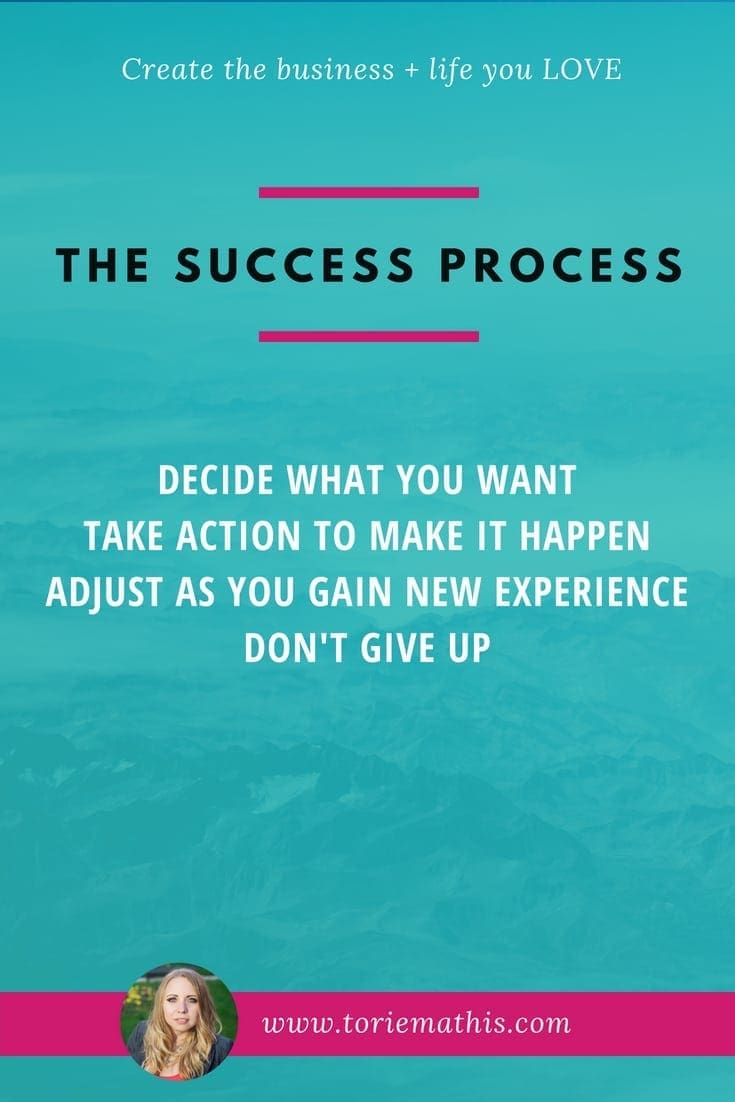
About Digital Marketing Expert Torie Mathis
 Torie Mathis helps entrepreneurs, like you, use digital marketing to grow your business without wasting time, money, or your sanity. She is a best-selling author, Army veteran, speaker + trainer, and your digital marketing coach. You don't need crazy tech skills, buckets of cash, or dedicated staff to market your business. In fact, you don't even need a lot of time. What you need is to be SMART.
Torie Mathis helps entrepreneurs, like you, use digital marketing to grow your business without wasting time, money, or your sanity. She is a best-selling author, Army veteran, speaker + trainer, and your digital marketing coach. You don't need crazy tech skills, buckets of cash, or dedicated staff to market your business. In fact, you don't even need a lot of time. What you need is to be SMART.
Torie hosts SMART AF, a show for non-techy entrepreneurs looking to grow their business, with her husband Sean and is the creator of SMART AF Magazine. Learn from Torie at the Smart Arsenal and on her channel.
What do you think? Let's talk! Leave a comment.
YOU MAY ALSO LIKE
Hi! I'm Torie!
 I help entrepreneurs (like you) use digital marketing to get more clients + to make more money. And I make it easy!
I help entrepreneurs (like you) use digital marketing to get more clients + to make more money. And I make it easy!
You don’t need crazy tech skills, buckets of cash, or dedicated staff to market your business. You don’t even need a lot of time.
What you need is to be SMART.
GET SMART AF
DELIVERED TO YOUR INBOX
from your Digital Marketing Coach Torie Mathis!
Let's get SMART!
Let's Connect!



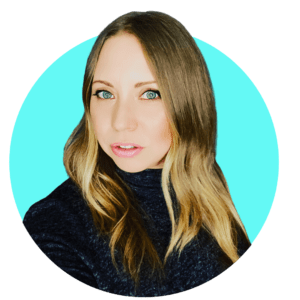 I help entrepreneurs learn digital marketing.
I help entrepreneurs learn digital marketing.




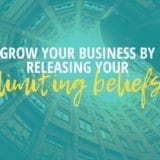

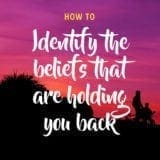
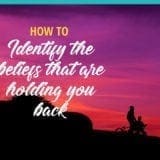

Awesome advice which i can apply to my daily life.